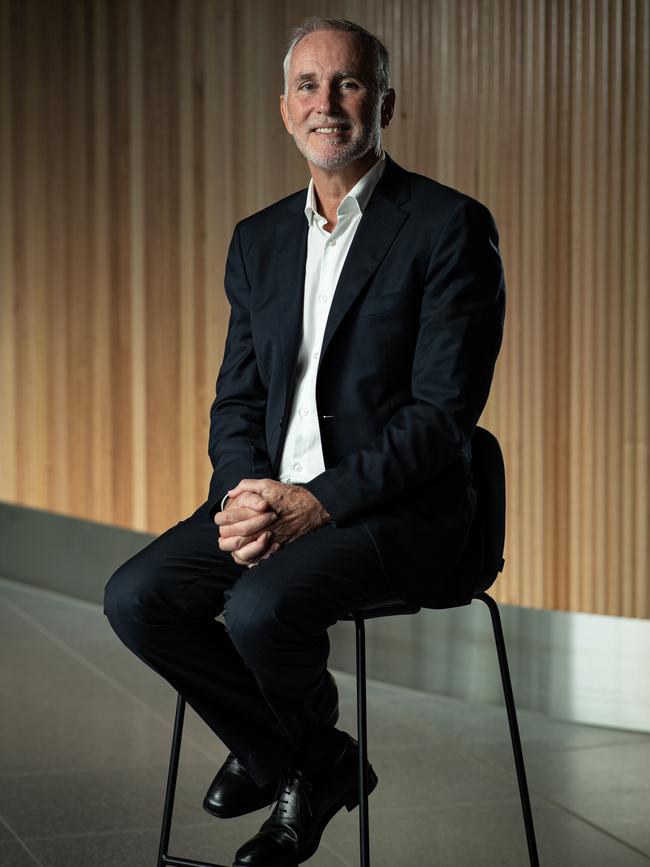John Holland boosts profits despite building woes
Chinese-owned developer and infrastructure company John Holland has defied the malaise in the building industry, at a time when home builders are reporting losses.

Chinese-owned developer and infrastructure company John Holland has defied the malaise in the building industry, overcoming supply chain woes prompted by the coronavirus pandemic and hefty writedowns in earlier years on the Melbourne Metro Tunnel project.
It has lifted profits at a time when home builders are reporting losses and even top-tier operations are under pressure, with their problems also affecting subcontractors, prompting a wave of insolvencies.
But John Holland’s broader scope of operations has set it on a more steady path as it is benefiting from the surge in government spending on infrastructure projects, though some are under pressure due to budget constraints.
The company said 2023 was a successful year, despite economic challenges such as rising costs and labour and supply chain issues, and the impact of adverse weather in eastern Australia. John Holland reported a jump in profit before tax to $195m, up from previous year’s $148m profit. The company’s financial position has strengthened considerably, with net assets rising to $823m.
The company directors, including chief executive Joe Barr, said the underlying business was strong due to its sound overall financial position, strong cash balances, and a solid pipeline of projects.
Almost $8bn worth of new work – both new awards and contract variations – was booked in 2023.
“We’re pleased to be in a strong and financially sustainable position – but we remain vigilant in the current market,” a John Holland spokesman said.
The company has picked up work in health and hospitals, transport and the water sector.
“Our focus is to capitalise on a strong pipeline of prospects and continue to provide certainty for our customers by delivering industry-leading solutions on projects,” spokesman said. “We look forward to building on our current financial position into the new year – with more than $1bn in new work won for 2024 to date.”
Big contracts include the M7-M12 Integration ($1.32bn), the new Toowoomba Hospital ($855m), Waterfront Brisbane ($822m) and Metro Trains Melbourne, which included an 18 month contract extension ($807m).
John Holland said there had been a “considerable” sum of “profitless revenue” in respect of the West Gate Tunnel and Melbourne Metro Tunnel projects as it had full written down the margin on those projects to forecast loss positions.

At the end of December, John Holland’s net cash stood at $1.29bn, down from $1.74bn a year earlier. It said this reflected operating cash outflows during the year of $371m.
This was “considerably favourable” to budget and largely represented the “unwind” in 2023 of favourable cash positions generated in previous years on a number of large projects as they approached completion.
John Holland said that subject to any unforeseen market conditions or extreme weather in eastern Australia, it expected to a solid profit result in 2024.
John Holland has featured in Sydney’s high-profile asbestos scandal in recent months, with the local council taking legal action to force it and CPB, which built Rozelle Parklands and the Rozelle Interchange, to hasten the clean-up of the contaminated sites.
John Holland’s accounts noted that fragments of asbestos were discovered in mulch at Rozelle and made known on January 9, after site handover almost a month earlier on December 15.
It said that since January 9 it had responded to requests for information from Environment Protection Authority NSW and was now responding to a clean-up notice issued to Transport for NSW, which has occupied the site since handover. It noted there were a number of other unrelated sites in NSW confirmed to be affected by fragments of asbestos in mulch and the Rozelle site was “part of a broad EPA NSW investigation”.




To join the conversation, please log in. Don't have an account? Register
Join the conversation, you are commenting as Logout